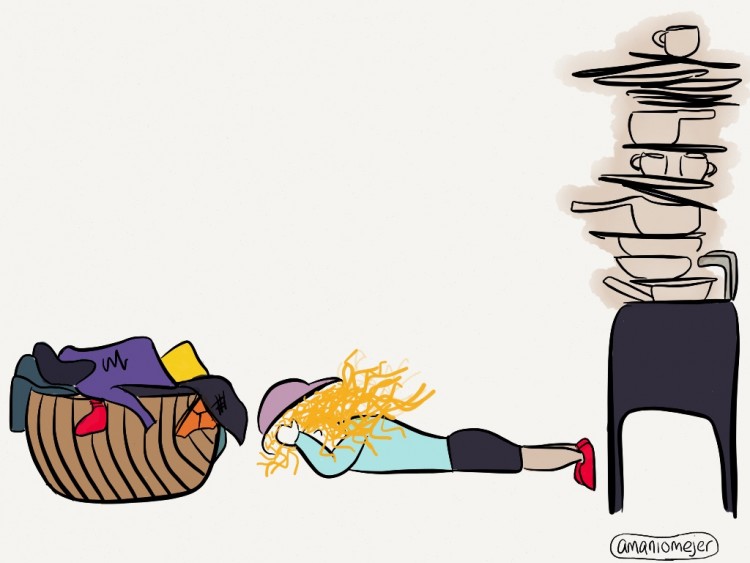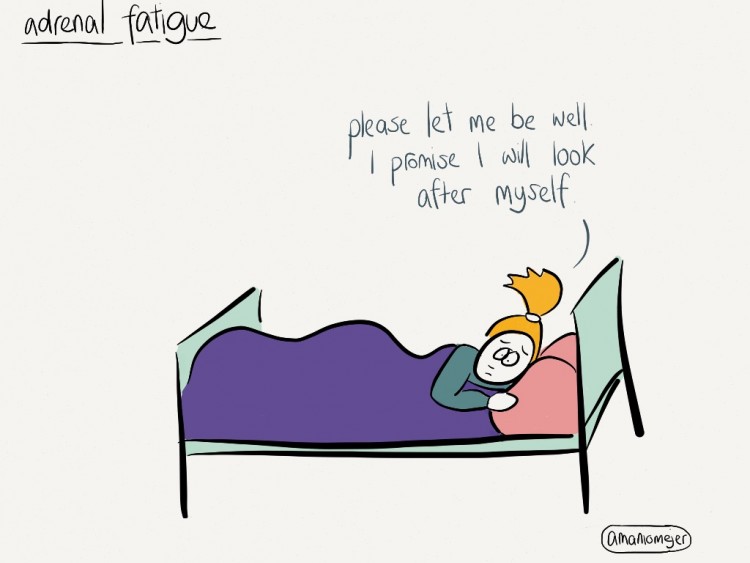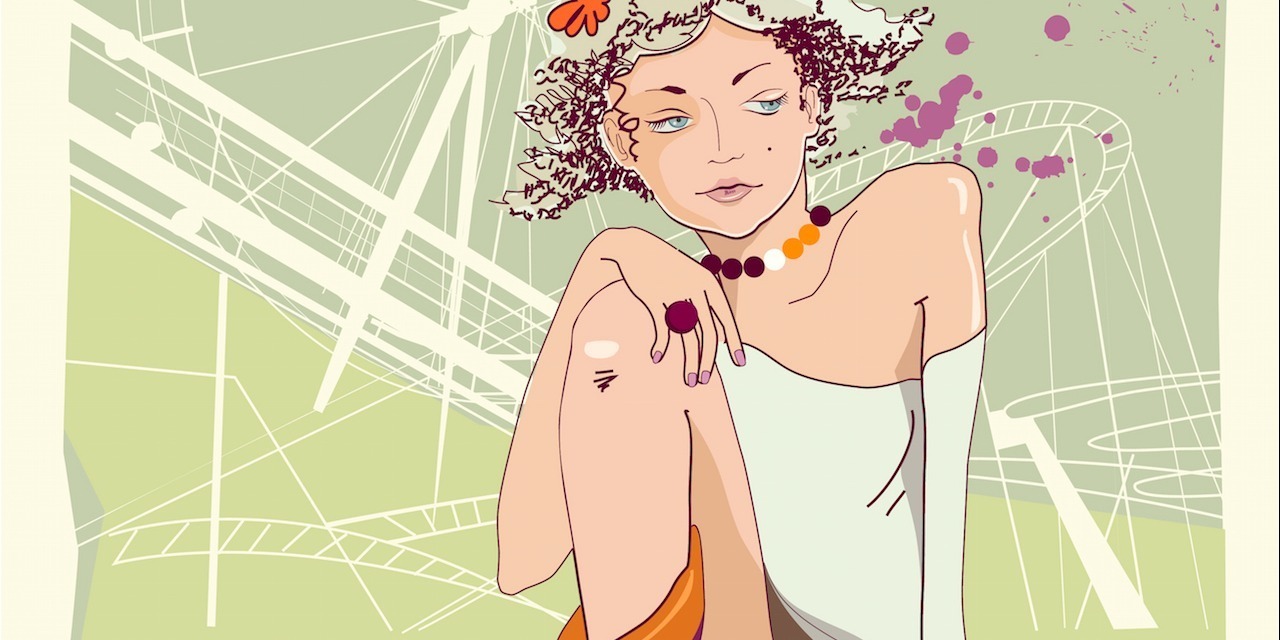
When I was six, I was hospitalized with Rocky Mountain spotted fever. At the hospital, I was encouraged to get out of bed, get dressed and spend as much time as possible in the playroom. I brought magazines and books back to my room to read and played with other kids who were up and about on the pediatric floor. There was a girl in the next room with leukemia, and we made faces and waved to each other through our shared window. The fact that I was able to play didn’t mean I wasn’t sick enough to be hospitalized. It meant that regardless of my illness, I was a child with the same needs and wants as other children.
Yet, with adults, the same concept doesn’t seem to hold true. Whenever ill people do — well, anything — it’s taken as “proof” that we’re bluffing about our condition. Many of us are confronted by complete strangers on a regular basis when we go out in public, on everything from using parking placards to requesting ADA accommodation at events. We’re challenged more by people we know, who should really know better.
After I became ill, I decided to go to my favorite theme park one day. I didn’t do much; it was a very sedentary experience. I posted a photo of myself on one of the rides on Facebook with my germ mask on backward, slept for days to recover from my adventure, and didn’t think much of it. A few days later, my Mom called me about it. A “family friend” had seen the photo and was furious about it. She’d apparently complained to several people that if I was at a theme park, I was obviously well enough to be working and was pulling some sort of scam. It had gotten back to my mother.
I promptly unfriended and blocked the person, but their actions stayed with me. For most of the next year or so, whenever I posted a photo of myself doing anything fun, I looked over my shoulder. I always made a point of describing how sick I was and how I’d needed to rest, and how tired I was afterward. I felt the need to qualify what I was doing; to verify that I was still ill, and to remind everyone that there was more to the truth than what was visible in the photo. Someone’s ignorance and unkind judgments had made me feel guilty about enjoying my life to the best of my ability and upset my mom, and that was unconscionable.
It often seems that there’s no real way for chronically ill people to win this battle. Hostile individuals who don’t want to believe that you’re really ill will find fault with anything you do. There’s no way to appease them, regardless of how you live your life.
Some chronically ill people are able to exercise, some are not. Some of us are encouraged to be physically active in some way to help us maintain function (I have a series of physical therapy exercises to do every day to help with some specific orthopedic issues, for instance). Yet, if you’re seen being physically active in any way, it’s taken as a sign that you’re not sick after all. Society likes to applaud those Olympic athletes who fight through their illness or disability to compete. If you fight through your illness or disability to do something physical sometimes, such as a 5K or dance performance, it may be seen as proof that you’re a fraud.
It’s widely accepted that having a strong, supportive network of friends and family is helpful to those who have chronic illness. We’re told that for our own well-being, we should get out of the house once in a while. However, if we dare to go out in public with friends or do something fun occasionally, again, some will believe we’re not sick. And if we spend one afternoon at the movies now and again, it somehow equates to being able to spend 40 hours a week, 50 weeks a year, at work.
If you live alone or don’t have a lot of support, you still have to take care of daily tasks, but something as simple as buying your own groceries might actually be seen as proof you’re able-bodied.
If you are too exhausted or hurting too much to shower, do your hair or dress up you’ve let yourself go; if you go out with makeup and styled hair, well, you’re obviously not sick because you don’t look sick.
If you post photos on social media where you’re looking well people will think you’re not ill; if you post photos of yourself undergoing treatment, you’ll be accused of being an attention seeker.
If you tell someone about the progressive course of your illness, you’re faking it because your Aunt Edna’s son’s niece had the same condition and she’s fine now.
Social media photos and observations of chronically ill people smiling and looking “normal” or doing errands have even been used to deny or remove disability benefits, which is quite possibly the most troubling thing of all. It’s hard to understand that disability determination specialists, doctors and government benefits administrators — people who supposedly are knowledgeable about a wide range of health conditions — don’t accept the concepts of good days, payback and invisible illnesses that do not always have linear trajectories.
Nobody ever seems to consider what’s happening outside and around that Facebook photo they’re snarking about. The fact that it might have been the first time in weeks that chronically ill patient got to do something really fun eludes them. They don’t realize how much those activities cost in terms of pain, fatigue and reduced function. They look at one photo or one Facebook status about one day and think they’re an expert on your life.
I’m not sure what these people think we’re supposed to do every day. We have incurable chronic illnesses. We often spend most of our time either at home or in treatment as it is. We’re often exhausted and in a lot of pain. If we’re not able to work full time, are we supposed to forgo any and all moments of joy, distraction, social interaction or enjoyment? Will that help us in any way? Being sick is extremely hard for many of us. It’s even harder when hurtful, judgmental types decide that illness should invalidate the fact that we have the same needs as anyone else. Instead of telling chronically ill individuals to shake off comments and accusations, maybe the onus should be on these hecklers to refrain from making them and mind their business. Is it really that hard to leave other people alone?
Eleanor Roosevelt once said: “Do what you feel in your heart to be right — for you’ll be criticized anyway.” I’ve taken those words to heart when it comes to interacting with others about my chronic illness. I am no longer particularly nice when I’m confronted by impromptu judges. Every once in a while someone honestly doesn’t understand, and politely and succinctly explaining a few things helps them. More often, though, they’ve already come to their own conclusions and nothing I say is going to put a dent in their hostility. I won’t waste my time trying to justify myself to random strangers and mean-spirited acquaintances who have appointed themselves judge and jury of my life.
I can’t stop others from thinking whatever they want about me. However, I can and do refuse to comply when someone demands apologies, guilt or justifications from me for getting out of the house once in a while. Anyone who decides that chronic illness somehow invalidates my needs as a person — including my needs for happiness and socialization — isn’t getting an iota of my concern.
The Shame and Self-Criticism That Keeps Me Quiet About My Illness
I recently spent four weeks in the hospital. This morning, lying in bed, in severe pain and unable to move, I had a strange feeling of missing the hospital. Not the noisy and un-restful clinical environment that being in hospital provides, but the “being able to press a buzzer and get pain relief or water or whatever I needed brought to me.” I missed having people nearby to look after me who are there to do just that, rather than friends I need to ask favors of.
I have lots of people offering their support, but asking for help is still really, really, hard. Sometimes I am good at it, but other times — like during this current stint of illness — it’s been incredibly difficult. When I feel at my most raw and vulnerable, when I’m in the most pain and unable to do the basics I need to do in order to survive (making food, shopping, etc.), asking for help is the hardest.
The fragility and vulnerability of being in so much pain you can’t move is scary — I feel a lot more alone than when I was in hospital. Despite having amazing friends around me, it is the moments like this — the morning after the night before — that are the most lonely and vulnerable. Last night I did more than I had done in ages (I’m not even talking that much — I picked berries from the garden and walked up and down the stairs a few too many times — I didn’t pull an all-nighter or cycle to France) but I woke up feeling as though someone was ripping my ribs apart and I was unable to do anything about it, or get up and get what I needed.
These are the moments — the crashes — I want to share with friends and people who love me, but are the moments that are the hardest to articulate or let people in when I’m experiencing them. Partly because often words don’t touch it, but also because it involves showing someone my unedited “messy.” It involves exposing my tender points, my embarrassment, my shame — it involves being vulnerable. Lifting off the veil of ability I often wear and saying “I can’t do this, I need your help” is so hard. I am good at being vulnerable in some areas of my life, but when it comes to illness, I frequently squirm and change the subject or joke about it.
Being so frequently floored by illness is something that, despite part of me knowing that it’s not my fault — it’s life, it has nothing to do with whether I am lovable or not, or whether I could have done something to prevent it — I still feel deep shame, embarrassment, self-criticism and discomfort about it. Part of me feels as though I have failed — at life and at being able to look after myself. Especially when I need help with the basics.
When spending time with friends, I might share a bit of my experience — I explain that I am in pain or feel really ill — but I never say as much as I need to, and rarely do I allow myself to be exactly as I need to physically. I will lie on the sofa, but only when I feel as though I will pass out if I don’t. I will generally push on through, battling hardcore symptoms while I smile and do things, and wait until friends leave or I walk home, until I fall onto my bed in a teary, exhausted, hurting, and frustrated-with-myself heap.

Sometimes this distraction is medicine — it is a welcome break from the intensity of my experience — but other times, I feel lonely and sad. I feel that familiar heartbreaking feeling of not feeling completely seen, known or understood by people I’m closest to. It isn’t their fault, it is just one of the extremely common, painful, and frustrating aspect, of long-term illness — that so much of it goes on “behind the scenes.”
It is as though my illness happens privately and what other people see is only half of me. The half of me that people see — the happy, bright and smiling me — is still very much me, but it isn’t the whole me. It isn’t necessarily what I am feeling at the time. Sometimes it is, but when I’m feeling really ill, I wear the “Seeming OK” mask, because without it I fear crumbling. I feel scared of being and feeling that vulnerable and exposed. The mask becomes a lifeline in an exhausting slog of simply functioning or interacting with people. But it also bites me on the ass when I want to feel seen, heard and understood. It masks connection.

It saddens me and it also frustrates the hell out of me. Shame and self-criticism is what keeps me silent and squirming. This shame and self-criticism comes from what society has told me I should be doing or achieving in order to have “succeeded,” and ultimately to be accepted and loved.
Chronic health issues have left my life looking very different to what I thought it would look like, and me feeling very different to how I thought I would, but none of it is “wrong.” It might be really tough to deal with but absolutely none of it is me “failing.” If anything it is the opposite: It is me surviving.
Your worth isn’t dependent on what you do, it is dependent on how you are. There are no “right” or “wrong” ways to live, despite society often telling us so — all we have is what is, and how we handle and cope with it.
Shame will always be there, but it doesn’t need to define our experience. Go share with people you trust who have had similar experiences, or people who can have compassion even if they haven’t, and it will dissipate. Even if only for that moment. For me, this is my medicine.








